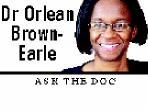I need help for my learning-disabled 10-y-o
Published: Monday | November 9, 2009

Q. I am having so many problems with my 10-year-old son. He is not reading at all. Compared to his sister, who is 15, he is very 'learning disabled'. I spoke with the school and they only have one reading teacher for many children. What am I to do? I cannot afford private lessons. Why doesn't the Government provide special classes for children like mine? We are not in the rural area, so they should be able to do something.
A. Currently, in Jamaica, we do not have as many special education teachers as we need and the few special educators we have are overburdened. I hope that there will be more reading specialists and special education teachers in our schools soon.
In the meantime, you have to do what you can to help your child. You may also need to see how you can put some money together to get him some special tutoring. The first thing you need to do is to get him tested to find out what type of learning problem he has. The psychologist who tests him will let you know what agency will be able to help him.
Until you can get your son tested, ask the reading specialist at your school to give him a reading test so you will know what level he is reading at and start to help him from that level. He may be 10 years old, but after testing you may find that he is reading like a six-year-old. Thus, books that are used at the level of grade one may be what you will need to help him. I am sure the reading teacher at the school will give you advice on how you can help your son at home. The reading specialist will be able to guide you to a psychologist in your area.
Q. I went to a counsellor and she asked a lot of questions about my life and asked me to fill out forms before coun-selling began. She also asked me to sign them. Was this necessary? It wasn't so bad. It's just that I had never done this before.
A. Any professional counsellor or psychologist will ask a client to complete forms that will help them get information about the client. All persons who go for counselling should sign a document to say that they agree to work with the counsellor or psychologist as there are some issues which must be made clear to the client before counselling begins. Different counsellors and psychologists have various ways in which they collect information before they begin counselling. Some ask questions to determine if the client is in the right place and others will ask you to fill in forms before they even speak with you. However, before formal counselling begins, you should complete a form so that you have a clear understanding of what the counselling professional is qualified to offer and how you will be expected to participate.
Q. We are migrating and I hope to continue counselling services for my children in the United States. How do I access services when I go there?
A. As soon as you arrive in the US, you can start to contact agencies that deal with the particular counselling concern you have. Your local psychologist will be able to provide you with the type of information you need.
Orlean Brown-Earle, PhD, is a child psychologist and family therapist. Dr Brown-Earle works with children with learning and behaviour problems throughout the island and in the Caribbean. Email questions to helpline@gleanerjm.com or send to Ask the Doc, c/o The Gleaner Company, 7 North Street, Kingston.







